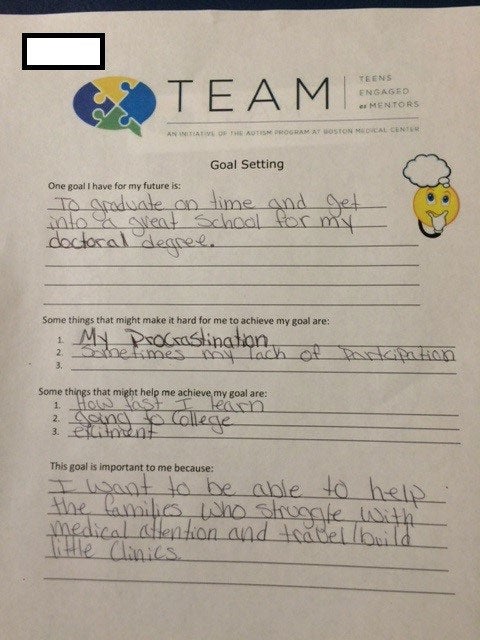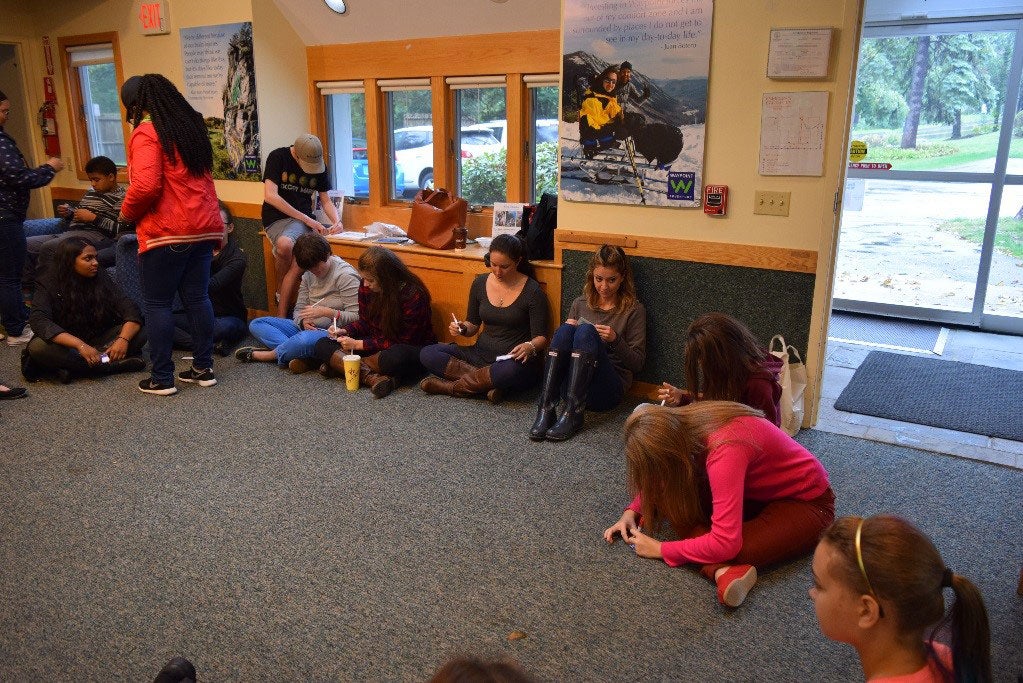
TEAM (Teens Engaged as Mentors) empowers diverse children and adolescents in a mentorship model that encourages strong leadership, self-confidence, and positive community relationships. In this unique program, teens with autism spectrum disorder (ASD) and typically-developing (TD) teens work together to mentor younger children on the autism spectrum.
TEAM inspires rich personal growth and development within each mentor and mentee while nurturing strong leadership skills and self-confidence. It also encourages independence while helping youth to identify personal goals and create action plans for achieving them. TEAM promotes positive community engagement through ongoing partnerships with programs and agencies from all across the city. TEAM focuses on strengthening social awareness while promoting an appreciation and understanding of differences as strengths in each mentor and mentee. Consistent with Boston Medical Center's overarching mission of "exceptional care without exception," this integrated and comprehensive teen mentoring program encourages empowerment in all participants.
The program runs from September through June each year and hosts monthly events focused around social/recreational or community service-based activities. Past events have included trail cleanup with the Mass Audubon Society, volunteering for Boston Cares' MLK Day of Service, bowling, and attending a Red Sox game. Mentors also participate in trainings in the fall and spring which prepare them to work with other mentors and mentees, as well as allow them to set their personal goals for the upcoming year.
Program Goals
- Encourage personal growth, leadership, independence, and self-awareness
- Cultivate leadership and social skills through mentorship
- Foster positive community engagement
- Improve skills needed for adult transition planning, such as time management, safety, and self-advocacy
Though appropriate and timely transition planning is mandated by the state through a student’s educational plan, there is often not enough work done specifically with the individual student to determine personal goals and action steps. It is anticipated that a majority of participants with autism will lack concrete transition plans at the program’s inception, but they will eventually begin to self-identify a clearer picture of what they would like to accomplish going forward. This personal reflection will ideally help make determinations about what assistance or training they might need to achieve their further goals in life.

A mentor’s goal setting sheet that was completed at a mentor training event.

A group of mentors at a mentor training event.
 en
en 
 Français
Français Deutsch
Deutsch Italiano
Italiano Español
Español Tiếng Việt
Tiếng Việt Kreyol ayisyen
Kreyol ayisyen